The Best Ways to Manage Hard Water in Your Home
Hard water, filled with minerals like calcium and magnesium, is a widespread problem affecting many households. It leads to limescale buildup, poor soap performance, and potential appliance damage. This article guides you through understanding, identifying, and managing hard water to improve your home’s water quality and protect your appliances.
Key Takeaways
-
Hard water, characterized by high calcium and magnesium content, can create cleaning challenges and affect plumbing systems, particularly in regions with specific geological conditions.
-
Identifying hard water involves recognizing signs such as soap scum, limescale deposits, and poor cleaning efficiency of appliances, with various testing methods available to measure water hardness accurately.
-
Effective solutions for managing hard water include installing water softeners and filtration systems, which can enhance water quality, protect household appliances, and improve overall cleaning efficiency.
Understanding Hard Water
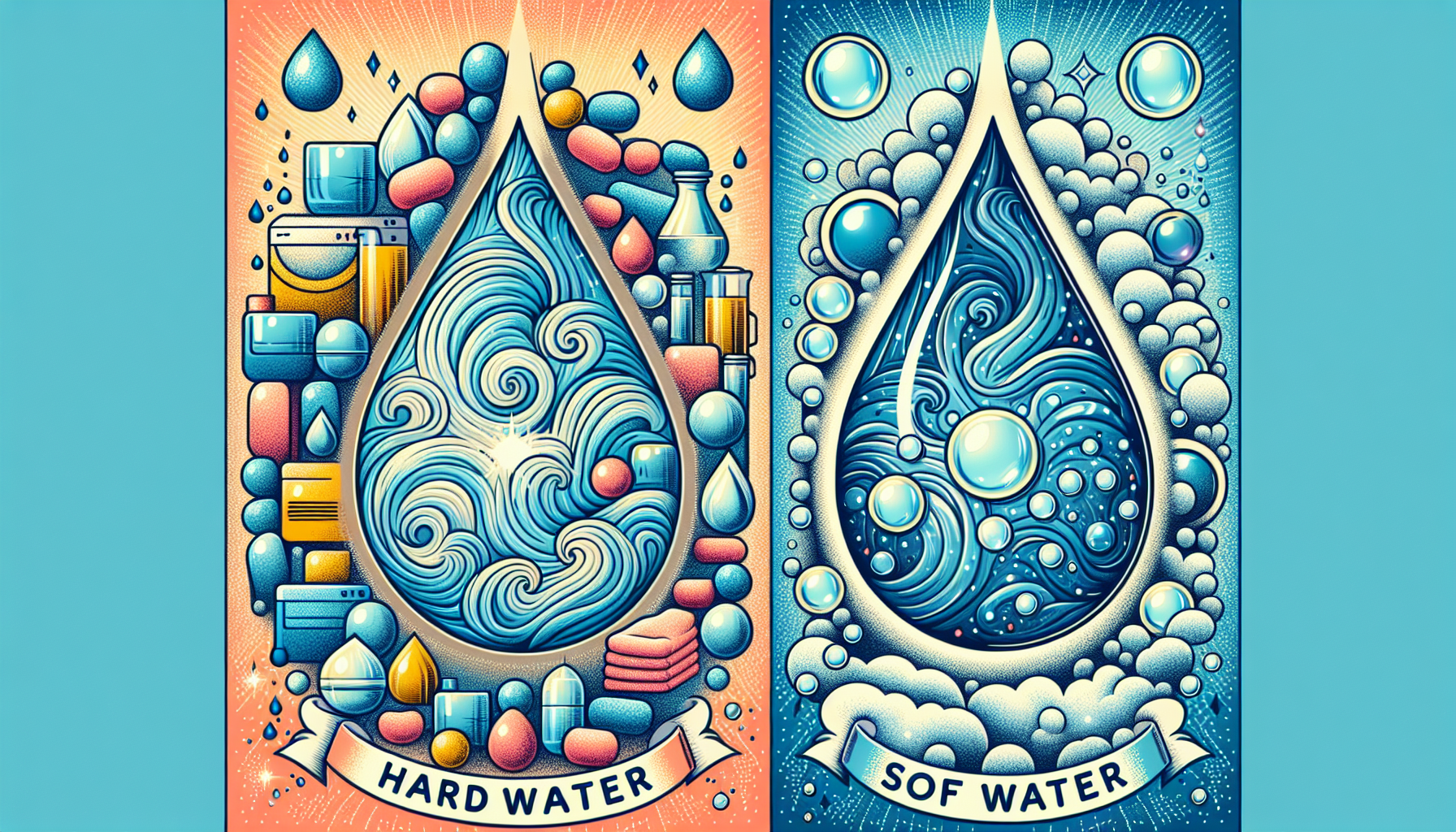
Hard water is defined as water with a high mineral content, primarily comprising calcium and magnesium ions. These minerals, while naturally occurring and not harmful in themselves, can cause various issues when present in elevated concentrations. The hardness of water is determined by the concentration of these minerals, classifying it as either soft or hard.
Water hardness varies significantly based on regional geology and the sources of water supply. Groundwater, for instance, typically exhibits higher hardness levels compared to surface water due to the percolation of minerals. Regions like Texas, New Mexico, and Colorado are known for their particularly hard water, while areas such as Snowdonia in Wales and the Pacific Northwest are blessed with some of the softest water.
Recognizing regional differences is especially important if you’re relocating or evaluating local water supplies for your home. In Australia, for example, water hardness ranges dramatically, with Victoria and Tasmania having the softest water, while Western Australia and South Australia face the hardest water conditions. Knowing the hardness level of your water supply can help you take appropriate measures to manage it effectively, in accordance with Australian drinking water guidelines.
How to Identify Hard Water in Your Home
The initial step in managing hard water is identifying its presence in your home. One of the most common signs is the persistent appearance of soap scum and residue, which are notoriously difficult to clean off surfaces. If you find yourself scrubbing away soap scum more often than you’d like, hard water is likely to blame.
White, chalky deposits around faucets and showerheads are another clear sign. Such mineral deposits, known as limescale and calcium carbonate deposits, indicate hard water. Additionally, you might notice persistent stains in your bathtubs or toilets that reappear shortly after cleaning. Such stains are typically caused by the high concentration of minerals in hard water.
If your clothes or dishes aren’t getting as clean as expected, hard water might be the culprit. It hampers the lathering of soap and detergents, resulting in inefficient washing. A metallic taste in your water is another strong indicator. These signs, combined with visible mineral deposits on sinks and tubs, can help you identify hard water issues in your home.
Testing for Water Hardness
Accurate testing for water hardness helps gauge the problem’s extent and decide on appropriate measures. Various methods exist for testing water hardness, each differing in accuracy and convenience.
Simple at-home tests like the soap test and visual inspections offer quick insights into water hardness levels. For more precise measurements, at-home test kits and professional laboratory analyses are available. Regular testing helps maintain healthy living conditions and ensures household appliances operate efficiently.
Soap Test
The soap test is a straightforward method to evaluate water hardness. It involves mixing soap with water and observing the foam produced. In hard water, soap reacts with the calcium and magnesium ions, producing less foam and more soap scum. If your water produces few suds when mixed with soap, it is likely hard water.
Quick and easy, this test serves as a convenient initial step in assessing water hardness. However, while it can indicate the presence of hard water, it does not provide precise measurements of the hardness level.
Visual Inspection
Visual inspections are another effective way to identify hard water. Common signs include stubborn limescale deposits on faucets and showerheads, white residues on fixtures, and a film on cleaned surfaces. These visual cues are clear indicators of mineral buildup caused by hard water.
Recognizing these signs helps determine if hard water affects your home. If you notice these indicators, further testing and appropriate measures should be considered to manage and mitigate the effects of hard water.
At-Home Test Kits
At-home test kits offer a convenient and fairly accurate way to measure water hardness. These kits typically involve dipping test strips into water samples and comparing the resulting color change to a reference chart. This allows you to determine the hardness level of your water based on the mineral content.
While at-home test kits are convenient, they may not be as precise as professional testing. However, they offer a quick and easy way to monitor your water’s hardness and decide if further action is needed.
Professional Testing
For the most comprehensive analysis, professional testing is recommended. This method often involves laboratory examination of water samples, offering precise measurements of calcium and magnesium concentrations.
Professional water testing helps understand the exact hardness levels. It ensures precision and provides a thorough evaluation, which is beneficial for making informed decisions about water treatment solutions.
Health Implications of Hard Water
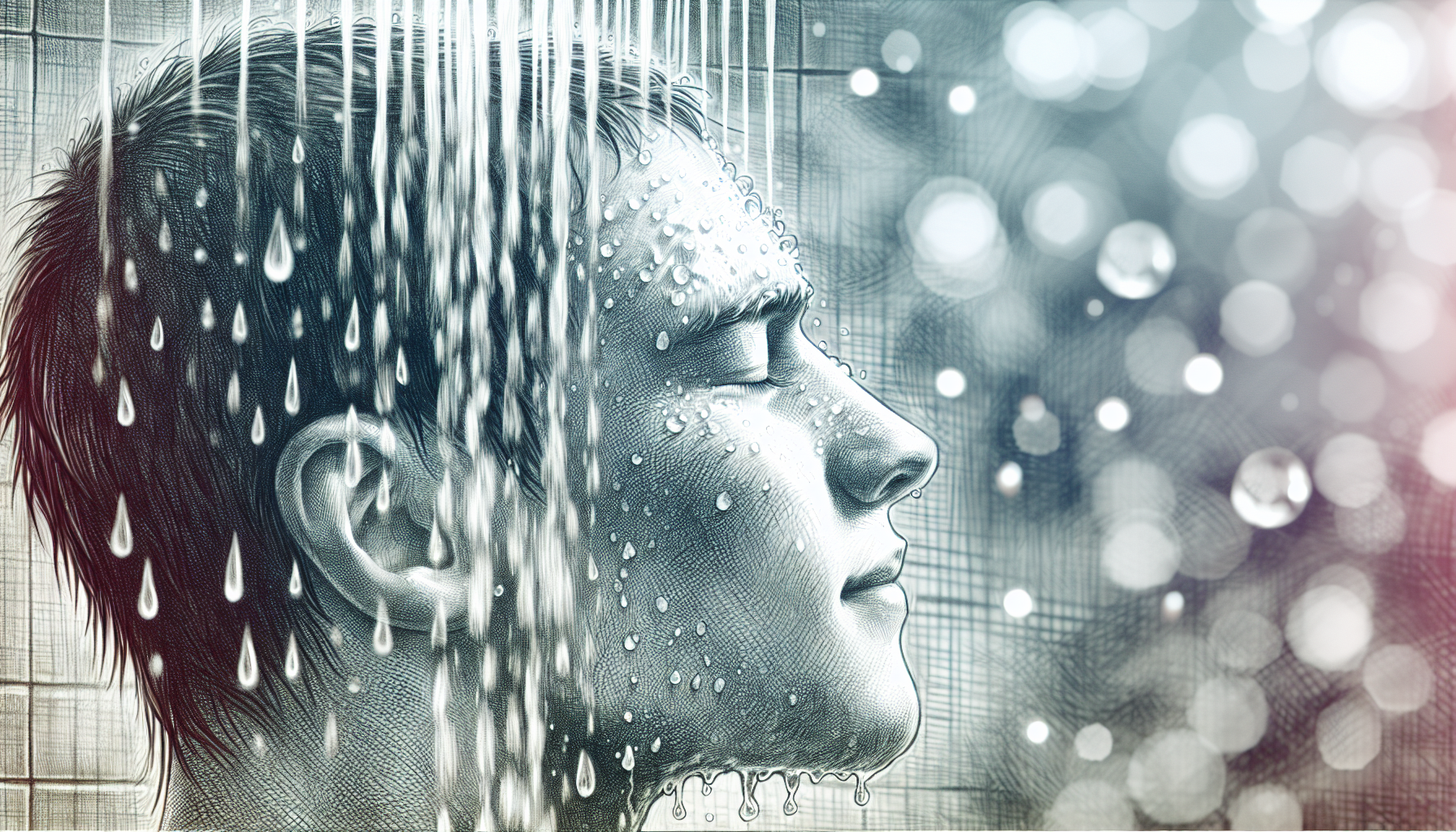
The primary minerals associated with water hardness, primarily calcium and magnesium, can have both positive and negative health implications. On one hand, these dissolved minerals are essential for our health, but on the other, their presence in high concentrations in drinking water can lead to various health conditions.
Health issues linked to hard water include:
-
cardiovascular disease
-
growth retardation
-
reproductive failure
-
diabetes
It can also exacerbate conditions like eczema and contribute to the formation of kidney stones.
Although linked to various health issues, definitive conclusions on hard water’s adverse effects are lacking.
Skin and Hair Effects
Your skin and hair can be significantly affected by hard water. The minerals in hard water can strip moisture from the skin, clogging pores and leading to dry skin. The effect on the skin barrier can increase sensitivity to irritants, making conditions like eczema worse.
For hair, hard water can cause dryness and coarseness, leading to frizz and breakage. Noticing these issues may warrant considering water softening methods to protect your skin and hair.
Potential Benefits
Interestingly, there are potential health benefits to hard water as well. Higher calcium levels in hard water have been linked to improved bone mineral density, which can reduce the risk of osteoporosis. The calcium content is associated with higher spine mineral density, crucial for maintaining bone health.
Magnesium in hard water might reduce the mortality rate linked to cardiovascular diseases. Drinking water with higher magnesium levels can reduce the risk of cerebrovascular disease, and the mineral content in hard water can positively affect digestive health and alleviate constipation.
Impact of Hard Water on Household Appliances
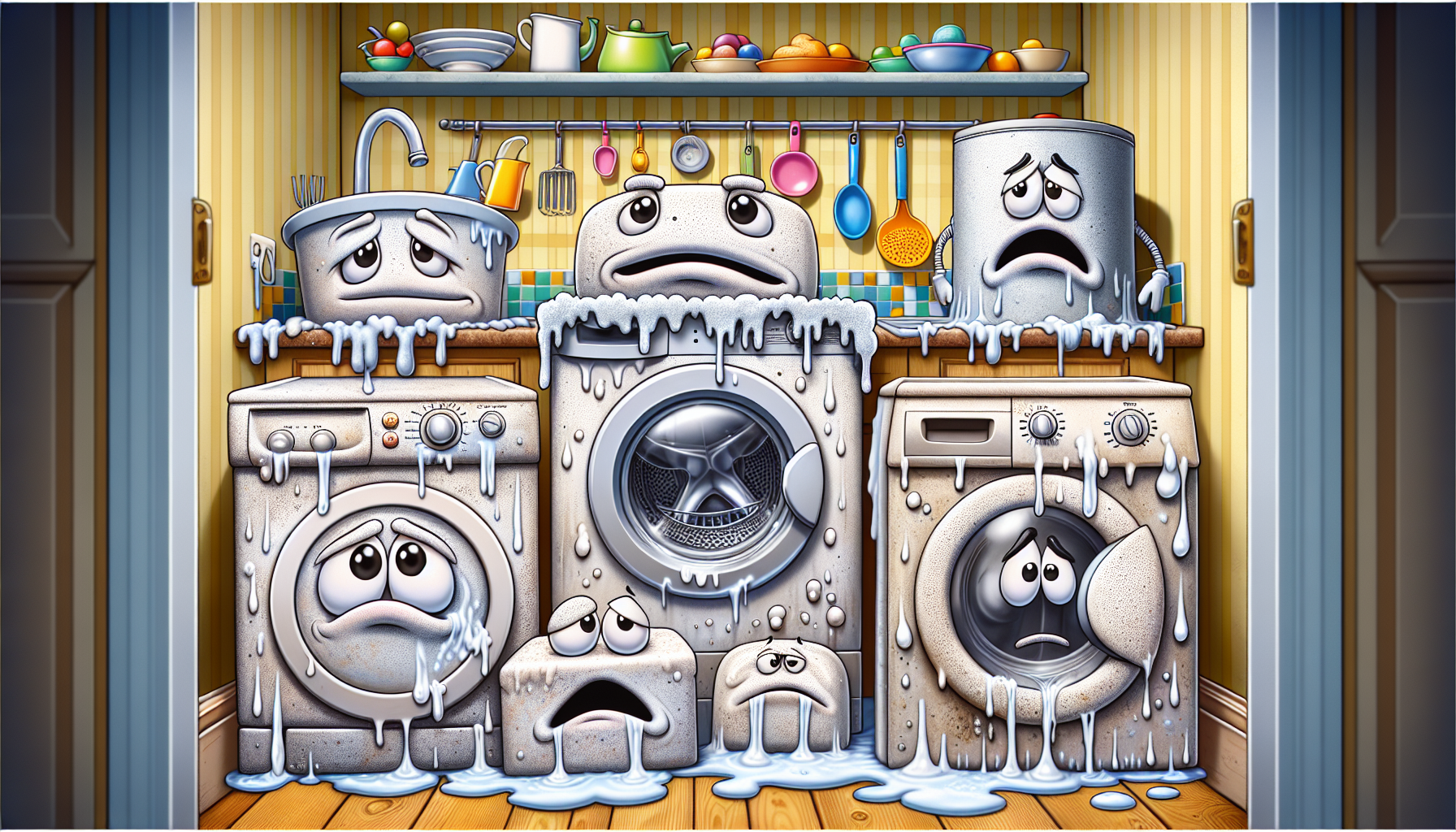
Hard water impacts not just health but also household appliances. Scaling in pipes and appliances is common in hard water regions. This scaling can lead to clogged pipes, slow drains, and reduced water pressure, all of which can significantly affect the efficiency of your plumbing systems.
Over time, mineral buildup from hard water causes significant corrosion in plumbing fixtures, affecting water flow and leading to costly repairs. The efficiency of water heaters can also be compromised, as hard water forms a thick layer of scale on heating elements, reducing their efficacy and lifespan.
Water Heaters
Water heaters are especially vulnerable to hard water effects. The Langelier Saturation Index (LSI) becomes more positive as water temperature rises, increasing the risk of scale buildup in water heaters. This scale buildup can lead to decreased efficiency, higher energy consumption, and increased operating costs.
Moreover, the anode rod in water heaters, designed to prevent corrosion, can corrode faster due to hard water, reducing its protective capabilities. This results in a shorter lifespan for the water heater and more frequent maintenance needs.
Plumbing Fixtures
Plumbing fixtures also suffer from hard water issues. Clogs in plumbing can occur due to mineral buildup, leading to blocked pipes and reduced water pressure. Over time, this buildup can damage fixtures and necessitate costly repairs.
Addressing hard water issues is vital for maintaining plumbing system health and efficiency. By recognizing the signs and taking appropriate measures, you can protect your home from the adverse effects of hard water.
Solutions to Hard Water Problems
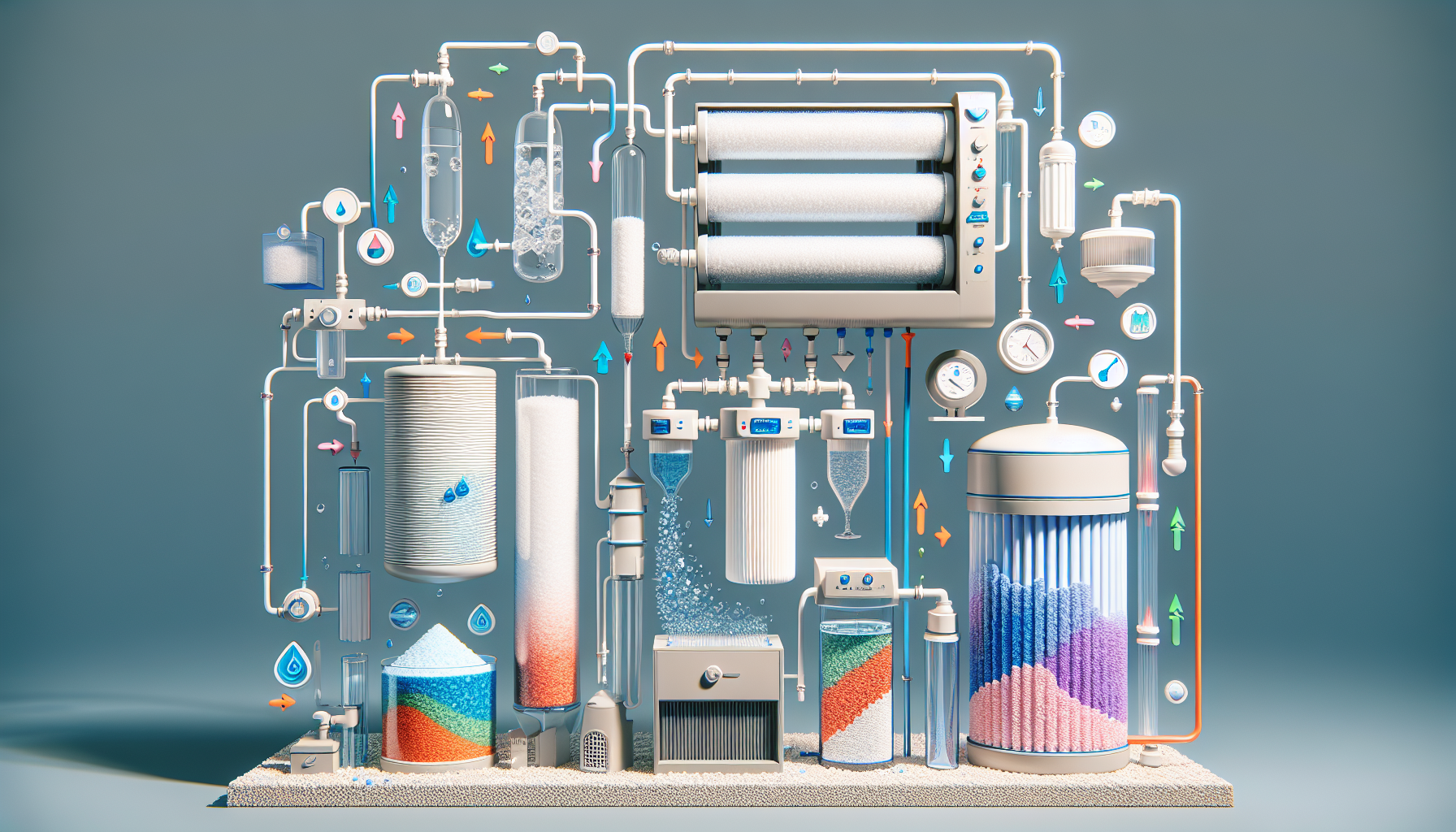
Luckily, effective solutions exist to manage hard water problems. Many households prefer installing a water filter system to combat both hard and soft water issues. Filtered pitchers and whole-house filtration systems are commonly used to address hard water, improving water quality and protecting appliances.
Installing a water softener is highly recommended to tackle hard water effectively. Water softeners enhance water taste, protect pipes from mineral buildup, and improve the efficiency of water-using appliances. Understanding the specific water quality needs of your home is crucial for selecting the right filtration system.
Water Softeners
Water softeners mainly use ion exchange, replacing calcium and magnesium with sodium or potassium ions. This process significantly reduces water hardness, leading to improved soap efficiency and reduced mineral deposits on fixtures, and washing soda can also be used to enhance this effect.
Using a water softener provides softer water, enhancing plumbing system lifespan and improving cleaning product effectiveness. This not only protects your home but also saves money on maintenance and repairs.
Filtration Systems
Various filtration systems can effectively manage hard water. A whole home water filtration system treats hard water throughout the entire house, ensuring that all the water you use is of higher quality.
Reverse osmosis systems, designed for drinking water purification, excel at removing a wide array of contaminants, including microplastics and heavy metals. While these systems are highly effective, they may waste a significant amount of water during the filtration process.
Choosing the Right Water Treatment System
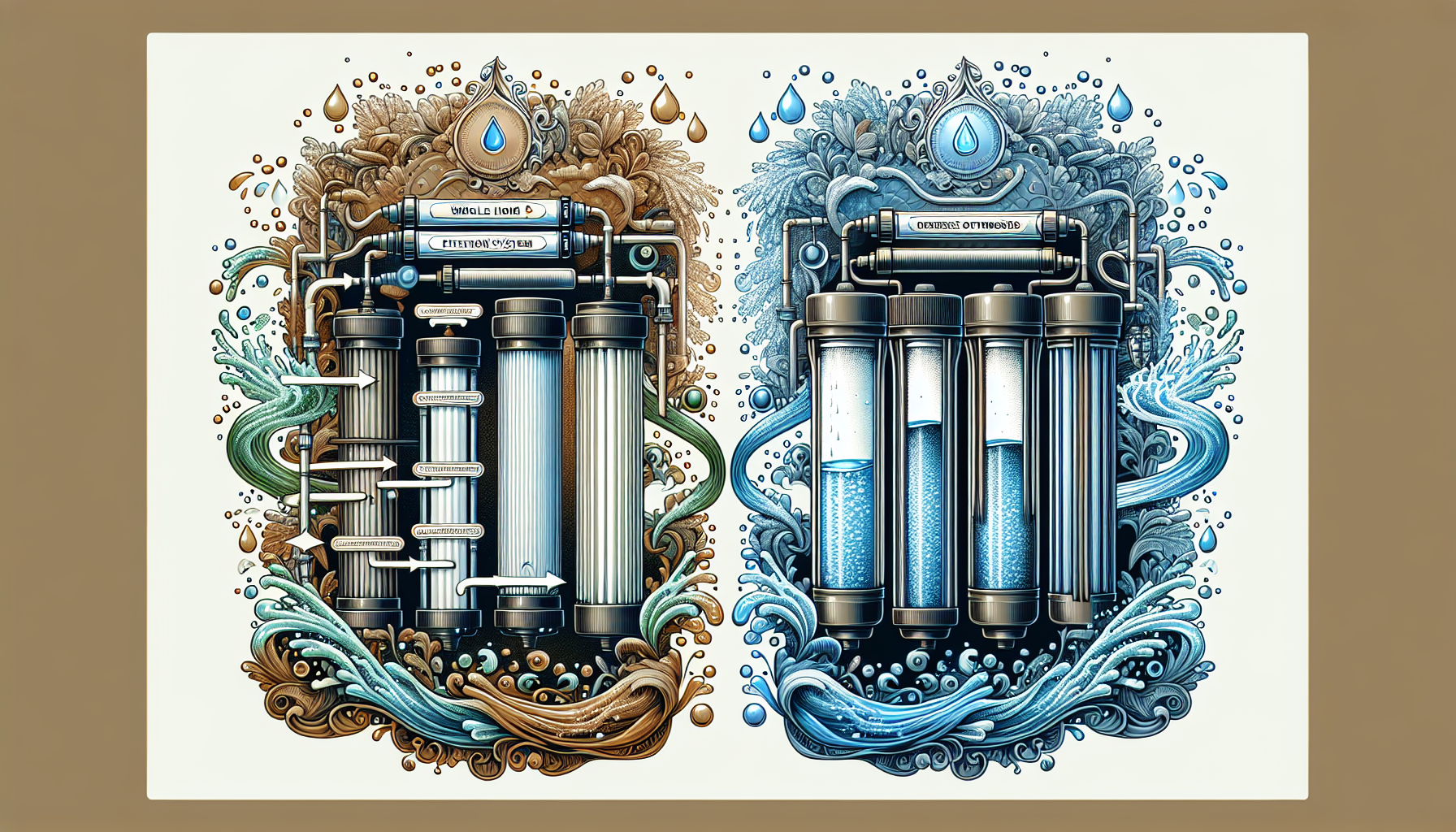
Choosing the right water treatment system is key to effectively managing hard water at home. Water softeners commonly reduce water hardness by exchanging calcium and magnesium ions with sodium ions. Filtration systems like whole-home filtration and reverse osmosis are also used to manage hard water.
When choosing a water treatment solution, consider factors like cost, maintenance requirements, and the effectiveness of the system. Whole-home filtration systems provide filtered water throughout the house, while reverse osmosis systems typically filter water for drinking and cooking. Considering these factors helps make an informed decision.
Whole Home Filtration vs. Reverse Osmosis
Whole home filtration systems offer comprehensive treatment for all household water, from taps to showerheads. They offer high flow rates and are designed to improve overall water quality.
In contrast, reverse osmosis systems use a very fine filter size, removing up to 99% of contaminants, but are typically installed under the kitchen sink. These systems focus on producing highly purified drinking water at the point of use, making them suitable for specific areas.
Factors to Consider
When selecting a water treatment system, cost is a significant factor. Initial installation prices and ongoing maintenance can vary widely between different systems. Some options require a higher initial investment but may save money long-term due to reduced maintenance needs and longer lifespan.
Additionally, consider the specific water quality issues in your home. Knowing your water’s mineral content and daily usage helps determine the most effective and economical treatment solution.
Summary
Managing hard water in your home is essential for maintaining both your health and the longevity of your appliances. From understanding the nature of hard water and identifying its presence to exploring various testing methods and treatment solutions, this guide has covered all the necessary steps.
By selecting the right water treatment system, whether it be a water softener or a filtration system, you can significantly improve water quality and protect your home. Take action today to address hard water issues and enjoy the benefits of softer, cleaner water.
Frequently Asked Questions
What are the primary signs of hard water in a home?
The primary signs of hard water in a home include soap scum, persistent stains on bathtubs and toilets, and white, chalky deposits around faucets and showerheads. Additionally, hard water inhibits proper lathering of soap and detergents.
How can I test the hardness of my water at home?
You can test the hardness of your water at home using at-home test kits, a soap test, or visual inspection. Each method provides a different level of accuracy and convenience.
What are the health implications of drinking hard water?
Drinking hard water may contribute to dry skin and hair, and is associated with conditions like cardiovascular disease and kidney stones. Conversely, its calcium and magnesium content can support bone density and digestive health.
How does hard water affect household appliances?
Hard water significantly affects household appliances by causing limescale buildup, which reduces the efficiency and lifespan of water heaters and can lead to clogged pipes and decreased water pressure, ultimately damaging plumbing fixtures. It is essential to address hard water issues to protect your appliances and plumbing systems.
What are the best solutions for managing hard water?
The most effective solutions for managing hard water include installing a water softener and using filtration systems, such as whole-home or reverse osmosis systems, to improve water quality. These options provide significant reductions in water hardness.



























